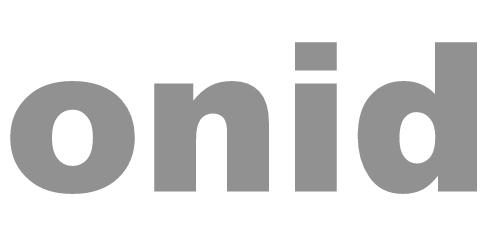AI for Content Scheduling
In the ever-evolving world of content marketing, staying organized and planning ahead is crucial for success. Content scheduling plays a pivotal role in ensuring a coherent and consistent content strategy. However, manual content scheduling can be time-consuming and prone to errors. This is where AI (Artificial Intelligence) enters the picture, revolutionizing the way we plan and publish content.
The Role of AI in Streamlining Content Scheduling
AI technology brings automation and efficiency to content scheduling by leveraging algorithms and data analysis. It can handle repetitive tasks, process vast amounts of data, and make intelligent decisions based on patterns and insights. With AI, content marketers can streamline their scheduling process, focusing more on creating engaging content rather than spending hours on logistics.
The Impact of AI on Content Marketing Strategy
Content marketing strategies are increasingly relying on AI for content scheduling. As AI algorithms become more sophisticated, they can not only identify optimal publishing times but also predict content performance and audience engagement. By aligning content with audience preferences, businesses can significantly enhance their overall marketing efforts.
The Future of Content Scheduling with AI
The future of content scheduling is inevitably intertwined with AI technology. As AI continues to evolve, content marketers can expect even more advanced tools and features. From personalized content recommendations to automated performance analysis, the possibilities are vast and exciting. Harnessing the power of AI will be essential for businesses to stay ahead in the competitive digital landscape.
The Benefits of Using AI for Content Scheduling
Running a content-driven campaign requires meticulous planning and coordination. AI-powered content scheduling tools can automate various tasks, such as content distribution and social media posting, that otherwise demand significant time and effort. By freeing up valuable time, content marketers can focus on strategizing and crafting high-quality content.
Improved Organization: How AI Streamlines Content Planning
Content scheduling can quickly become overwhelming, especially when dealing with multiple channels and platforms. AI tools intelligently organize content calendars, ensuring a seamless and consistent flow of content across various channels. With AI, content marketers can efficiently plan, track, and manage all their content assets in one centralized platform.
Enhanced Engagement: How AI Optimizes Content for Maximum Engagement
Understanding audience behaviors and preferences is crucial for creating engaging content. AI-powered analytics tools can analyze vast amounts of data to identify patterns and trends, helping content marketers tailor their content to suit their target audience. By optimizing content for maximum engagement, businesses can foster stronger connections and drive greater audience participation.
Increased Productivity: How AI Facilitates Effective Planning and Execution
AI can transform the content scheduling process, making it more efficient and productive. With AI-powered tools, marketers can automate content posting, scheduling, and distribution across various platforms. This streamlines the workflow, eliminates human error, and allows content marketers to focus on higher-value tasks, such as content creation and strategy development.

Exploring AI Tools for Content Scheduling
AI technology has spawned a wide range of tools specifically designed to enhance content scheduling processes. These tools utilize machine learning algorithms to analyze data, predict content performance, and automate various scheduling tasks. From sophisticated content management platforms to AI-powered social media schedulers, there is a solution to fit every business's needs.
Features and Benefits of AI Content Scheduling Tools
AI content scheduling tools offer a plethora of features that revolutionize content management. These tools provide advanced analytics, audience insights, and intelligent scheduling based on historical performance data. The benefits include improved content performance, increased audience engagement, streamlined workflows, and data-driven decision-making.
How to Choose the Right AI Tool for Content Scheduling
Selecting the right AI content scheduling tool is crucial for maximizing its benefits. Factors such as the size of your organization, specific scheduling needs, budget, and integration capabilities should all be considered. It's essential to evaluate different tools, assess their features, and choose the one that aligns with your content marketing goals and requirements.
Case Study: Successful Use of AI Tools in Content Scheduling
To illustrate the effectiveness of AI tools in content scheduling, let's take a look at a real-world case study. Company X, a leading digital marketing agency, implemented an AI-powered content management platform. By leveraging AI algorithms, Company X witnessed a significant improvement in content performance, audience engagement, and overall productivity.
How to Implement AI in Your Content Scheduling Process
Step-by-step Guide to Integrating AI in Content Scheduling
Implementing AI in your content scheduling process doesn't have to be daunting. Here's a step-by-step guide to help you get started:
- Assess your scheduling needs and goals
- Research and choose an AI content scheduling tool
- Integrate the tool with your existing systems
- Analyze and migrate your existing content assets
- Utilize AI to automate scheduling tasks and optimize content performance
- Monitor and analyze the results
- Continuously refine and improve your content scheduling strategy based on AI-driven insights
Tips for Maximizing the Use of AI in Content Scheduling
To make the most out of AI-powered content scheduling, keep these tips in mind:
- Leverage AI analytics to identify content trends and audience preferences
- Experiment with different posting times and formats to optimize engagement
- Regularly review and update your content strategy based on AI-driven insights
- Continuously monitor and refine your AI algorithms to adapt to changing audience behaviors
- Stay up-to-date with the latest AI advancements and tools in the content scheduling space
Common Challenges in Implementing AI for Content Scheduling and How to Overcome Them
While implementing AI in content scheduling brings numerous benefits, it also presents certain challenges. These may include resistance to change, data privacy concerns, and the need for training and upskilling employees. Overcoming these challenges requires effective change management, clear communication, strong data security measures, and ongoing training and support.
Measuring the Success of AI Implementation in Content Scheduling
Measuring the success of AI implementation in content scheduling is crucial to evaluating its impact and refining strategies. Key performance indicators (KPIs) such as content engagement, conversion rates, and time saved can provide valuable insights. By regularly analyzing these metrics and comparing them with pre-AI implementation data, businesses can effectively measure and showcase the benefits of AI in content scheduling.

Case Studies and Real-world Applications of AI in Content Scheduling
Case Study 1: How Company A Improved Their Content Strategy with AI
Company A, a global e-commerce retailer, implemented an AI-driven content management platform. By leveraging AI's data analysis capabilities, they gained insights into customer preferences, enabling them to optimize their content strategy. This resulted in increased customer engagement, higher conversion rates, and boosted revenue.
Case Study 2: How Company B Streamlined Their Content Scheduling Process with AI
Company B, a content-focused media company, faced challenges in managing their vast content catalog across multiple platforms. By implementing an AI-powered content scheduling tool, they were able to automate content distribution and scheduling. This streamlined their workflow, reduced errors, and improved overall productivity.
Case Study 3: How Company C Increased Engagement with AI-Powered Content Scheduling
Company C, a social media marketing agency, utilized AI algorithms to analyze social media patterns and optimize their content posting schedule. By posting at optimal times and tailoring content to their target audience, they saw a significant increase in engagement metrics, such as likes, shares, and comments.
Case Study 4: How Company D Boosted Productivity with AI in Content Scheduling
Company D, a digital publishing company, integrated an AI-powered content management platform into their workflow. This tool automated many manual scheduling tasks, freeing up time for content creators to focus on quality content creation. As a result, their productivity significantly increased, resulting in a higher publication frequency and improved content performance.
Conclusion
AI for content scheduling is revolutionizing the way businesses plan, execute, and optimize their content marketing strategies. By harnessing the power of AI algorithms, content marketers can save time, improve organization, enhance engagement, and increase productivity. With a wide range of AI-powered tools available, businesses can seamlessly integrate AI into their content scheduling processes and unlock the full potential of their content marketing efforts. As AI technology continues to evolve, the future of content scheduling holds even more exciting possibilities and opportunities for businesses to connect with their audiences on a deeper level.

Understanding AI Algorithms in Content Scheduling
AI algorithms analyze data to identify patterns, trends, and relationships that assist in making intelligent decisions for content scheduling. These algorithms process data from various sources, such as audience behavior and historical performance, to determine optimal posting times, frequency, and content types.
The Role of Machine Learning in Content Scheduling
Machine learning algorithms enable AI to learn from data and improve its performance over time. In content scheduling, machine learning algorithms can learn from past content performance, audience engagement, and other variables to predict optimal scheduling strategies. This continuous learning helps marketers refine their content strategy and maximize its impact.
The Impact of Natural Language Processing on Content Creation
Natural Language Processing (NLP) plays a crucial role in content creation by enabling AI to understand and interpret human language. AI-powered content scheduling tools can leverage NLP to analyze and categorize content, extract key insights, and generate relevant recommendations for content topics, keywords, and formats.
Predictive Analytics in AI for Content Scheduling
Predictive analytics uses historical data and statistical techniques to forecast future outcomes. In content scheduling, predictive analytics can help marketers predict content performance, such as engagement metrics and conversions, by analyzing various factors like audience behavior, industry trends, and historical data. This allows marketers to make data-driven decisions and optimize their content scheduling strategy.
The Role of AI in Content Personalization and Targeting
How AI Helps in Content Personalization
AI enables content personalization by analyzing user data, preferences, and behavior patterns. By leveraging AI algorithms, content scheduling tools can deliver targeted content to individual users based on their preferences, interests, and demographics. This enhances the user experience, increases engagement, and improves conversion rates.
The Importance of Targeting in AI-Powered Content Scheduling
Targeting is crucial in content scheduling to reach the right audience at the right time. AI-powered targeting algorithms analyze user data, such as browsing history and demographic information, to identify the most relevant audience segments for specific content. This helps content marketers deliver tailored content that resonates with their target audience, ultimately driving better results.
Case Studies of Successful Content Personalization with AI
Real-world case studies demonstrate the effectiveness of AI in content personalization. Companies that have implemented AI-powered content scheduling and targeting have witnessed significant improvements in audience engagement, conversion rates, and overall content performance. These case studies provide tangible examples of how AI can transform content personalization strategies.
Future Trends in AI-Powered Content Personalization
The future of AI-powered content personalization holds exciting possibilities. As AI technology advances, content scheduling tools will become more sophisticated in analyzing user behavior, preferences, and context. The future trends include hyper-personalization, dynamic content delivery, and real-time content customization, all aimed at creating more engaging and relevant experiences for users.

AI and Multichannel Content Scheduling
The Importance of Multichannel Content Scheduling
As businesses expand their online presence across various platforms, multichannel content scheduling becomes vital. AI enables seamless scheduling and distribution of content across multiple channels, such as social media, websites, blogs, and email marketing. This ensures consistent messaging and maximizes the reach and impact of content.
How AI Facilitates Multichannel Content Scheduling
AI-powered content scheduling tools offer features like automated cross-platform posting, centralized content management, and integration with different channels. These tools enable content marketers to manage and schedule their content across multiple channels from a single platform, saving time and effort while maintaining consistency.
Challenges and Solutions in AI-Powered Multichannel Scheduling
Implementing AI for multichannel content scheduling presents challenges such as channel-specific content optimization, maintaining brand consistency, and adapting to diverse audience behaviors on each platform. However, AI can help overcome these challenges by providing insights into optimal posting times, content formats, and audience preferences for each channel.
Case Studies of Successful Multichannel Content Scheduling with AI
Real-life case studies illustrate how AI has successfully enabled businesses to schedule content across multiple channels effectively. These case studies showcase how AI-powered tools streamlined content distribution, ensured consistency across platforms, and improved audience engagement on various channels.
Ethical Considerations in AI for Content Scheduling
The Ethical Implications of Using AI in Content Scheduling
AI-powered content scheduling raises ethical concerns such as the potential for manipulation, the creation of fake news, and the loss of human creativity. It is crucial to establish ethical guidelines and transparent practices to ensure the responsible use of AI in content scheduling and mitigate potential negative impacts.
Balancing Automation and Authenticity in AI-Powered Content
Finding the right balance between AI automation and maintaining authentic human engagement is vital. While AI can streamline content scheduling processes, it is essential to infuse human creativity and judgment to maintain a genuine connection with the audience. Content creators and marketers need to strike a balance to deliver valuable and authentic content experiences.
Privacy and Security Concerns in AI for Content Scheduling
The use of AI in content scheduling necessitates the handling of user data, raising concerns about privacy and data security. Businesses must establish robust data protection measures, adhere to regulations, and ensure transparency in data collection and usage. Safeguarding user privacy and securing data should be a top priority in AI-powered content scheduling.
Best Practices for Ethical Use of AI in Content Scheduling
To ensure ethical use of AI in content scheduling, businesses should follow best practices such as transparency in data collection, providing opt-out options for users, implementing secure data storage, and conducting regular audits to ensure compliance with privacy regulations. By adopting ethical guidelines, businesses can build trust and maintain a positive reputation.
Evaluating the ROI of AI in Content Scheduling
Understanding the ROI of AI-Powered Content Scheduling
Assessing the return on investment (ROI) of AI in content scheduling is crucial for justifying its implementation. ROI metrics include factors like time saved, improvements in content performance, increased audience engagement, and conversions. Understanding the tangible benefits of AI helps businesses evaluate the effectiveness and value of adopting AI in content scheduling.
Methods for Measuring the Success of AI in Content Scheduling
To measure the success of AI in content scheduling, businesses can utilize various methods such as tracking engagement metrics, analyzing conversion rates, conducting A/B testing, and comparing pre-AI implementation data against post-AI implementation results. These methods provide valuable insights into the impact and effectiveness of AI in content scheduling.
Case Studies of ROI from AI-Powered Content Scheduling
Real-world case studies demonstrate the positive ROI resulting from the implementation of AI in content scheduling. By showcasing tangible results, these case studies provide evidence of how AI-powered content scheduling tools have increased productivity, enhanced content performance, and driven significant returns on investment for businesses.
Future Trends in ROI Evaluation for AI in Content Scheduling
As AI technology continues to evolve, future trends in ROI evaluation for AI in content scheduling may include more advanced analytics capabilities, predictive modeling for ROI projections, and integration with business intelligence tools. These trends will enable businesses to make data-driven decisions, optimize their content strategies, and maximize ROI from AI-powered content scheduling efforts.

AI Automation Agency Services
AI automation agency services leverage AI technology to streamline and optimize content scheduling processes for businesses. These agencies provide expertise in using AI tools and algorithms to automate tasks such as content creation, scheduling, distribution, and performance analysis. By partnering with an AI automation agency, businesses can benefit from the efficiency and accuracy that AI brings to content scheduling, freeing up valuable time and resources.
AI automation agencies utilize sophisticated AI algorithms to analyze audience data, identify trends, and make data-driven recommendations for content scheduling. These agencies can automate content creation through AI-driven content generation tools, ensuring a steady flow of high-quality content. They also utilize AI-powered content distribution strategies, targeting the right audience at the right time across multiple channels.
Authority Websites
AI plays a significant role in content scheduling for authority websites. These websites typically have a large volume of content and a diverse audience. AI algorithms can analyze audience behavior, preferences, and engagement patterns to determine the optimal scheduling of content on these platforms. By leveraging AI, authority websites can ensure a consistent flow of fresh and engaging content, maximizing their influence and credibility.
AI algorithms can also assist in improving the discoverability of content on authority websites by analyzing search engine trends and optimizing content for better search engine rankings. This helps drive organic traffic to the website and increases its authority in the industry.
Social Media Posts
AI-powered tools are increasingly used for scheduling social media posts. These tools use AI algorithms to analyze audience behavior, historical data, and engagement patterns to determine the best times to post on social media platforms. By scheduling posts at optimal times, businesses can maximize their reach and engagement on social media.
AI also helps in the automation of social media posting tasks, eliminating the need for manual scheduling and ensuring a consistent presence across multiple platforms. AI-powered social media scheduling tools can automate the scheduling, posting, and monitoring of social media content, saving time and effort for businesses.
Feature Images
AI automation plays a significant role in the selection and creation of feature images for content scheduling. AI algorithms can analyze the content and target audience to determine the most relevant and engaging images. AI-powered image recognition technology can understand the context of the content and suggest appropriate images that align with the message and target audience.
AI-driven image creation tools can also automatically generate feature images based on the content, saving time and resources for businesses. These tools utilize AI algorithms to create visually appealing and relevant images that enhance the impact of the content.
AI-Driven Apps
AI-driven apps provide businesses with intelligent solutions for content scheduling. These apps use AI algorithms to analyze data, make predictions, and automate various tasks related to content scheduling. For example, AI-driven apps can analyze audience behavior and preferences to recommend the optimal timing and frequency of content publishing.
AI-driven apps can also automate content creation by utilizing natural language processing and machine learning algorithms to generate high-quality content. These apps can not only save time in creating content but also ensure consistency and relevance.
Furthermore, AI-driven apps can facilitate data-driven decision-making by providing insights and analytics on content performance. These insights help businesses refine their content scheduling strategies and maximize their content marketing efforts.
Overall, AI-driven apps empower businesses with intelligent tools and automation for effective and efficient content scheduling.

FAQs
How can AI automation agency services help businesses streamline content scheduling processes?
AI automation agency services leverage advanced AI technology to automate tasks such as content creation, scheduling, distribution, and performance analysis. By partnering with an AI automation agency, businesses can benefit from the efficiency and accuracy that AI brings to content scheduling, freeing up valuable time and resources.
How can AI algorithms optimize content scheduling for authority websites?
AI algorithms can analyze audience behavior, preferences, and engagement patterns to determine the optimal scheduling of content on authority websites. By leveraging AI, authority websites can ensure a consistent flow of fresh and engaging content, maximizing their influence and credibility. AI can also assist in improving the discoverability of content on authority websites by analyzing search engine trends and optimizing content for better search engine rankings.
How do AI-powered tools enhance social media content scheduling?
AI-powered tools use advanced algorithms to analyze audience behavior, historical data, and engagement patterns to determine the best times to post on social media platforms. By scheduling posts at optimal times, businesses can maximize their reach and engagement. AI also automates social media posting tasks, eliminating the need for manual scheduling and ensuring a consistent presence across multiple platforms.
How does AI contribute to the selection and creation of feature images for content scheduling?
AI algorithms analyze the content and target audience to determine the most relevant and engaging feature images. AI-powered image recognition technology understands the context of the content and suggests appropriate images that align with the message and target audience. AI-driven image creation tools can also automatically generate visually appealing and relevant feature images based on the content.
How do AI-driven apps facilitate effective content scheduling?
AI-driven apps utilize AI algorithms to analyze data, make predictions, and automate various tasks related to content scheduling. These apps can analyze audience behavior and preferences to recommend optimal timing and frequency for content publishing. AI-driven apps can also automate content creation and provide insights and analytics on content performance, helping businesses refine their content scheduling strate


